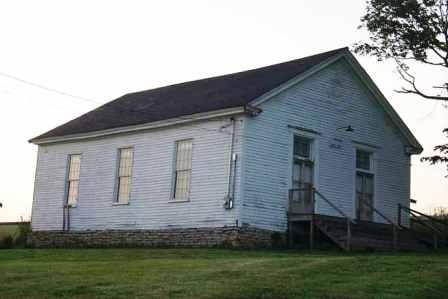
The Church that Jesus Built (Matthew 16:13-20)
The church is important to Jesus. He purchased the church with his blood (Acts 20:28). He gave himself for the church (Eph 5:25). He is the head of the church (Col 1:18).
Because the church is so important to Jesus, we need to look at the “Church that Jesus Built.”
Human Testimony Concerning the Church Won’t Do, vv 13-14
Jesus asked his disciples what people were saying about him.
The disciples gave various responses:
- Some people thought he was John the Baptist. There has been a tendency through the ages to disbelieve great people have died. Many in the Roman Empire refused to believe Nero, that horrible emperor, was really dead. Herod thought John the Baptist had been raised (Matt 14:1-3). But, Jesus wasn’t John.
- Some people thought he was Elijah. The Jews expected Elijah to return before the Messiah (Mal 4:5). But, Jesus wasn’t Elijah.
- Some people thought he was Jeremiah. A Jewish tradition said that Jeremiah hid the Ark of the Covenant before the Captivity. The Jews expected Jeremiah to return before the Messiah and return the Ark of the Covenant to God’s people. But, Jesus wasn’t Jeremiah.
- Some people thought he might have been another prophet.
Jesus wasn’t any of these figures.
Divine Testimony Will Do, vv 15-18
Jesus asked his disciples, “But who do you think I am?”
Peter stood up and said, “You are the Christ, the Son of the living God.” Peter said Jesus was the Anointed One—the Messiah. Peter said Jesus was the Son of God. Peter knew Jesus was more than people were saying he was. Napoleon said, “I know men, and Jesus Christ is more than a man.”
Jesus blessed Peter because flesh and blood [humans] had not revealed this truth to him. God had revealed this truth to Peter. I don’t think Peter saw a vision in which this truth was revealed. I think he saw the miracles Jesus did by the hand of God. In that way God had revealed this to Peter.
Jesus would build this church on this testimony. Jesus called Simon “Peter” which means “rock.” Jesus would build his church on rock. The rock upon which Jesus would build the church is Peter’s confession, Jesus’ divinity. The Greek terms are different here. Jesus doesn’t mean he built the church with Peter was the first Bishop of Rome.
Jesus calls Peter “Rock,” not only because he was a rock-like figure, but because Peter made this confession. As such, Peter is symbolic of others who would become members of the church. All members of the church must believe that Jesus is the Son of God.
Jesus would build his church. Jesus would do the building. Because Jesus built the church, he can have the church the way he wants. If he wants a cappella music, he gets it. If he wants men to lead the church, he gets it. Jesus drew up the blueprints; the church needs to be the way Jesus wants it—not the way we want it.
The powers of death would not overcome the church. Jesus literally says, “The gates of Hades would not overcome the church.” Hades is the unseen world of the dead. Jesus says even though he would die, he would build the church. Jesus would be raised from the dead and made head of the church. After Jesus talked with his disciples here, he began to tell them he must die and be raised from the dead (Matt 16:21).
Human Rules Won’t Do, v 19
Jesus gave Peter the keys of the church. Keys are symbolic of power and of locking and unlocking. Revelation 1:18—Jesus has the keys of Death and of Hades. Revelation 3:7—Jesus has the key of David. He opens and no one shuts; he shuts and no one opens.
Jesus gave Peter some power in the early church. Peter preached the first sermon at Pentecost. He preached the first sermon to the Gentiles. He was the “spokesperson” of the early church.
Whatever he bound on earth would be bound in heaven; whatever he loosed on earth would be loosed in heaven. Binding and loosing have important meanings. To bind was to declare something forbidden. To loose was to declare something allowed.
When Jesus talks about things bound or loosed in heaven, he uses the perfect tense. The perfect tense means something has taken place in the past which has present implications. What Jesus means is this, “Peter, whatever you bind on earth will have already been bound in heaven, and whatever you loose on earth will have already been loosed in heaven.” Peter was simply the spokesman to announce what God had bound and loosed.
Peter couldn’t make up his own rules; he has to follow Jesus’ rules. What Peter bound and loosed, God had already bound and loosed. Brethren, we need to follow God’s rules. In all things, we need to follow God’s rules.
Conclusion
Jesus told his disciples not to tell anyone he was the Christ. He didn’t want hearsay—human testimony. He wanted people to come to him because they heard the Word of God, not the word of men. Later these disciples would have the Spirit so they could speak God’s truth.
Have you heard God’s Word?
This sermon was originally preached by Dr. Justin Imel, Sr., at the Main Street church of Christ in Pikeville, Kentucky.





